Senate Conservative ranks could continue to grow, says caucus leader Housakos
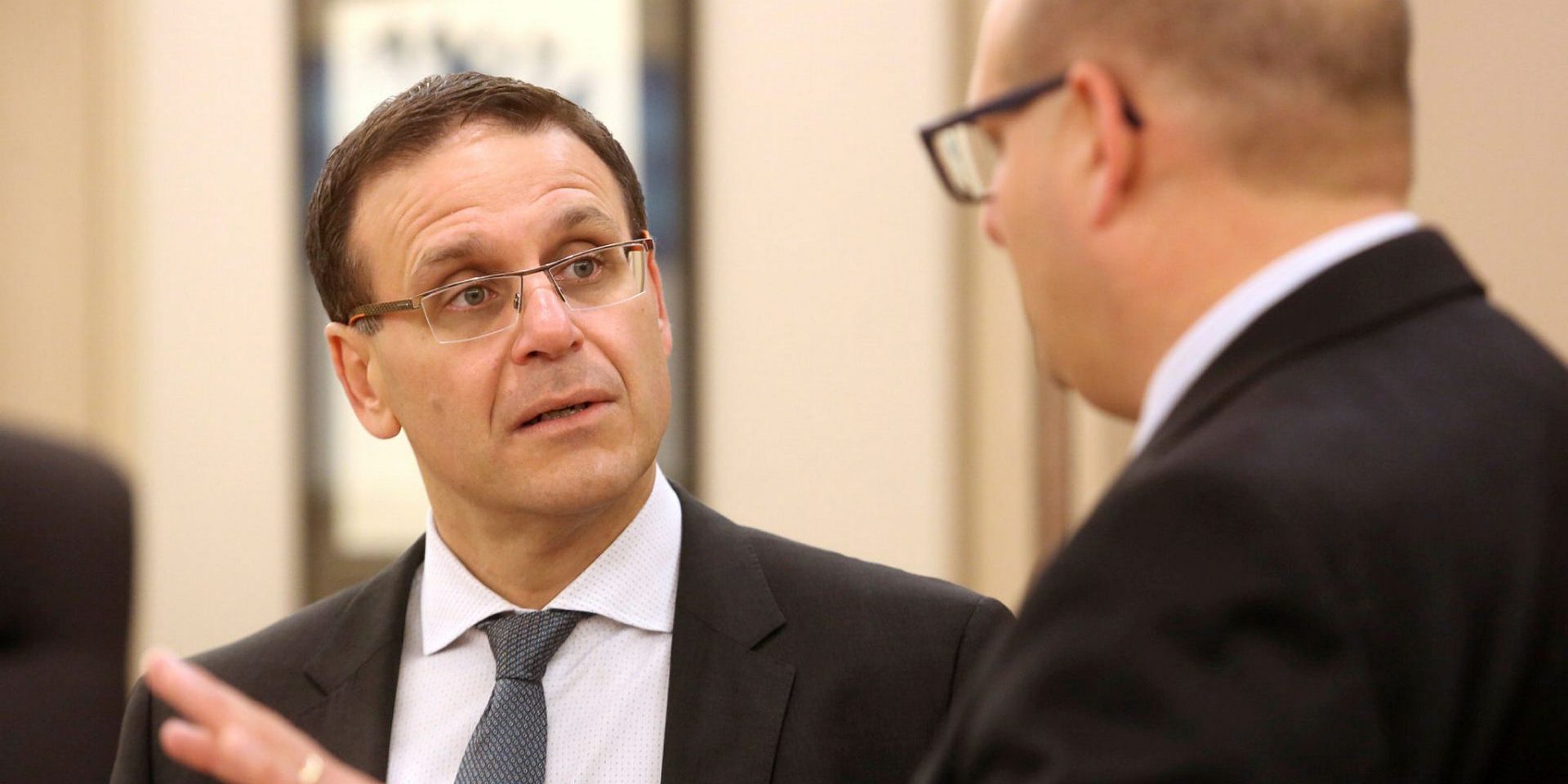
The Senate Conservative caucus recently got its first injection of new blood in more than a decade, with three Senators announcing their decisions to join the Upper Chamber’s only remaining party-affiliated caucus. New Conservative Senate Leader Leo Housakos says more such announcements could be coming soon.
Housakos (Wellington, Que.) was acclaimed as the new Conservative Senate leader on May 6, just weeks before the start of the 45th Parliament.
Since taking over, he said he’s “been focusing on a lot of things”—and talking to Senators about joining the otherwise dwindling Conservative caucus is one of them.
Without the recent addition of three new Senators, the caucus had been on track to drop to 10 members with the upcoming retirement of Senator Judith Seidman (De la Durantaye, Que.) this September. Senate groups need at least nine members in order to have recognized status, which is required, for example, to be allocated seats on committees.
As it was, Conservative Senators were juggling as many as three or four committee assignments, said Housakos.
“In an appointed Chamber where we haven’t formed government, the only way for us to grow is to bring in new members. So I won’t say that it’s preoccupied most of my time [since becoming leader], but it’s been made a lot easier by a great deal of interest since the election on the part of many of my colleagues who want to join us,” said Housakos.
The recent announcements came in quick succession, starting on June 4 with a press release welcoming non-affiliated Senator David Richards (New Brunswick) to the Conservative caucus. On June 10, it was announced non-affiliated Senator Mary Jane McCallum (Manitoba) would also be joining the Tory team, and two days later Senator Larry Smith (Saurel, Que.) announced his return to the caucus from his most recent home with the Canadian Senators Group (CSG).
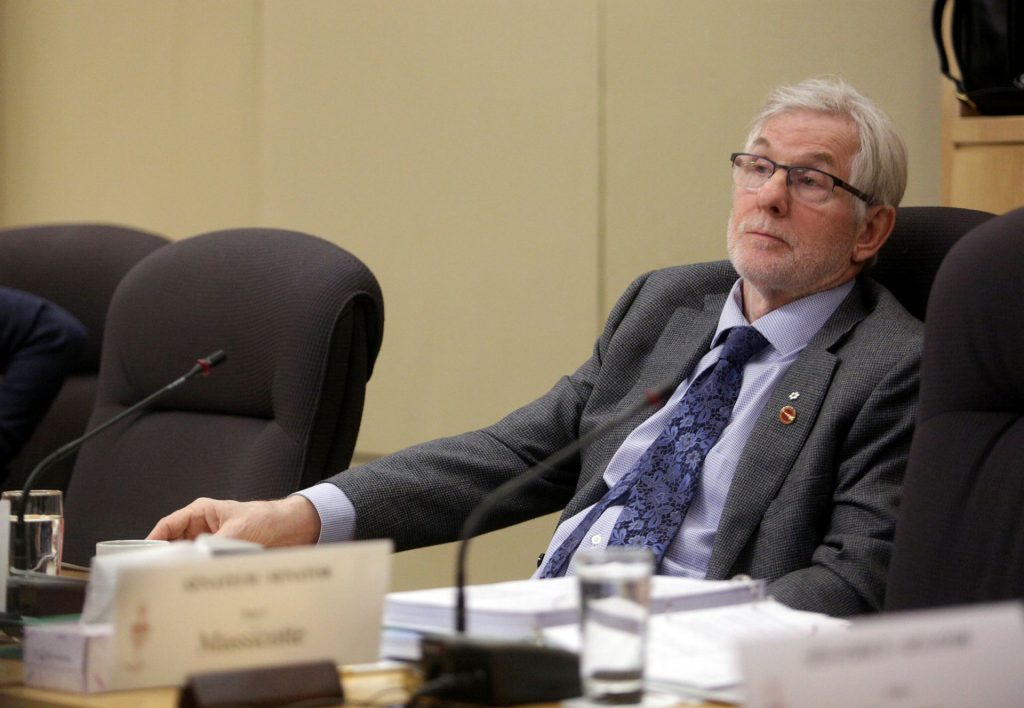
Richards, McCallum, and Smith are the first new Conservative Senators since 2013.
Housakos suggested at least another two such announcements could be coming soon. “I really hope it’s before we rise [this] week, but definitely over the course of the summer,” he told The Hill Times.
“I think it’s imminent; there’s been a lot of interest since Senator Richards broke the ice.”
Asked how many Senators are currently mulling potentially joining the caucus, Housakos said “it’s not an insignificant amount … I can tell you it’s a fistful.”
Housakos said interest from independent Senators began emerging months ago, even prior to the election and his acclamation as caucus leader.
“Many,” he said, are “intrigued with the possibility of sitting in a national caucus,” something which offers the “privilege” of “an additional platform in order to advocate for their region and the issues they believe in,” and which most of former prime minister Justin Trudeau’s appointees—ex-MPs not included—haven’t had the opportunity to experience.
“We’re not on a deliberate sales pitch; we’re not like on a door-to-door Amway campaign to try to recruit colleagues,” said Housakos. “Most have proactively approached me, and I’ve answered their questions, I’ve shared with them what our [caucus] outlook is, and, for many of them, it’s just sheer curiosity of trying something different. For most of these Senators that we’re talking to, they’ve never been in a national caucus, they’ve never been in a party-affiliated group, so some of them have some misconceptions.”
Among those “misconceptions,” he said, is that all caucus votes are whipped—he called that a “myth,” saying “people think we’re whipped or more aligned than we actually are”—and that it doesn’t “allow for open debate.”
“We’re a big-tent group that reflects many different points of view,” he said.
Housakos said “many” of the Senators he’s spoken to have expressed a belief in the importance of having “an effective opposition to hold the government to account.”
“And some of them who I’m in discussion [with] right now feel that there’s not enough of that going on,” he said.
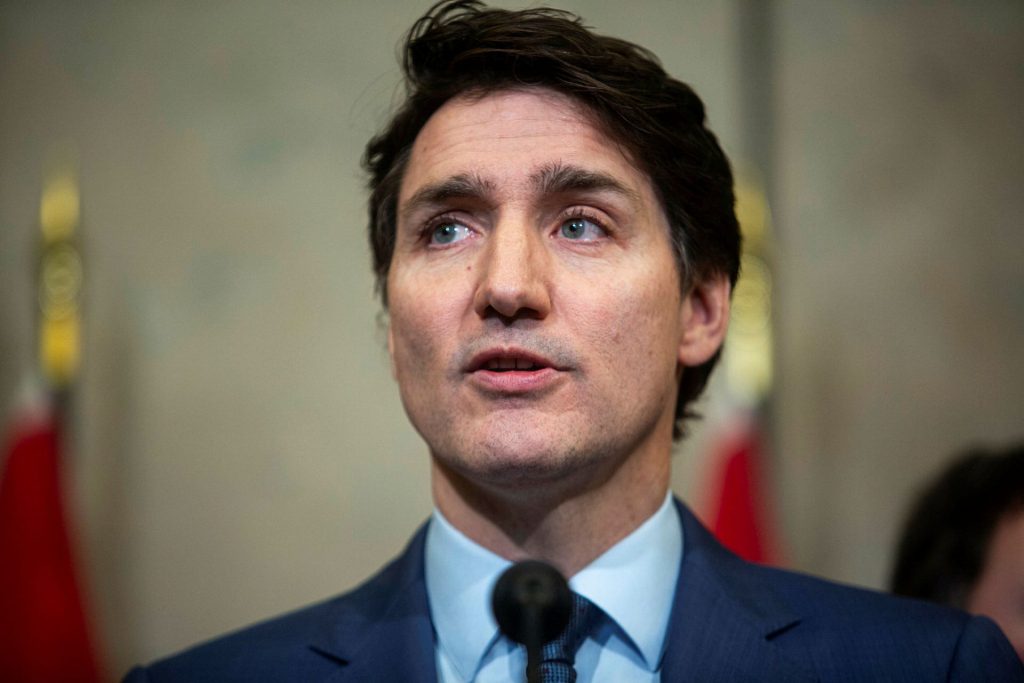
The timing of that increased interest aligns with Trudeau’s exit from the Liberal Party helm—announced in January, and realized in March.
Trudeau got the ball rolling on Senate modernization by severing caucus ties with Liberal Senators in 2014, and subsequently establishing a new independent advisory board for Senate appointments. Since 2015, all new Senators have been appointed to sit as independents.
“I think there’s always a sense of more liberty and more independence when the prime minister who appointed you is no longer in Ottawa,” suggested Housakos, noting many of former Conservative prime minister Stephen Harper’s appointees felt similarly after 2015.
Rather than seeing the shift in interest as a win for the old order of things, Housakos said he sees it “as a win for the modernization of the Senate, that, finally, independent and open-minded Senators don’t see a dichotomy between having independent Senate groups and political party affiliations in the Chamber.”
“One should not exclude the other if you’re a truly open-minded, independent parliamentary system,” he said.
Housakos said the recent level of interest expressed in his caucus is “reassuring.”
“You need to have a strong opposition in order for a Parliament to function properly,” he said. “You also have to find a happy medium to make sure government legislation is treated with a solid, sober second thought, but not in an obstructionist fashion. We need to respect the democratic House.”
Smith returns to his roots
McCallum and Richards both declined interview requests from The Hill Times.
Richards was appointed to the Senate on Trudeau’s recommendation in August 2017. He subsequently joined the Independent Senators Group (ISG), but left in 2018 to once again sit as a non-affiliated Senator. In late 2019, Richards joined the CSG, but left that group, too, in May 2024.
The press release on McCallum’s decision noted she would “continue her work on Indigenous health, education, and reconciliation as a member of the Senate Conservative Caucus.” In quotes included in the release, McCallum, who is of Cree heritage, said she made the decision after “consulting with Grand Chiefs and community leaders,” and that she feels it is “a crucial step in building bridges.”
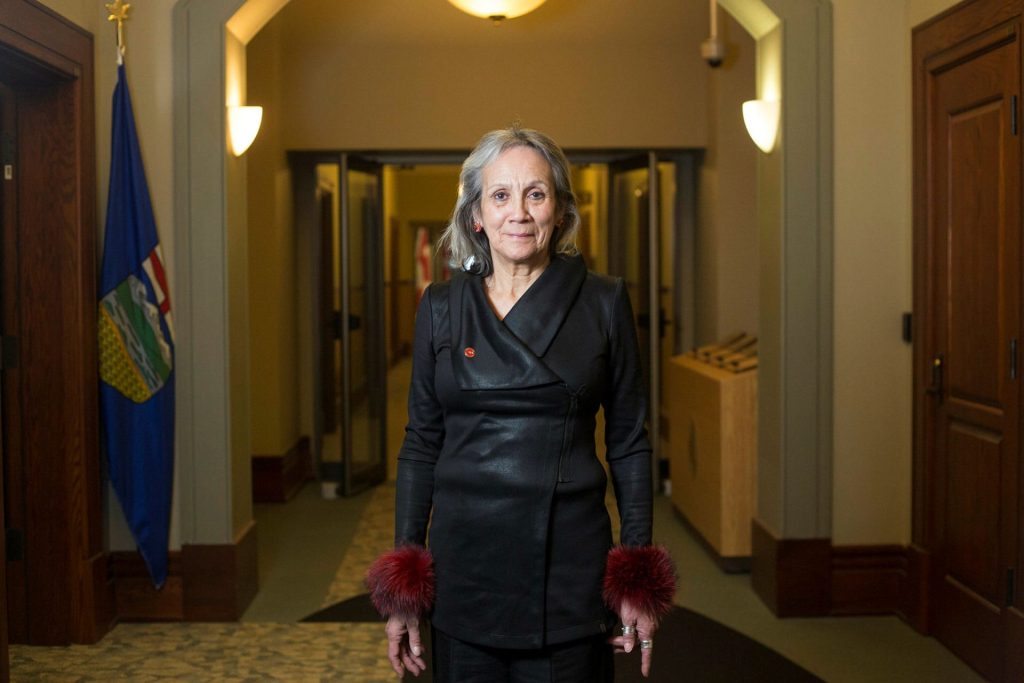
“Our communities have long sought opportunities for greater collaboration and mutual understanding. By joining the Senate Conservative Caucus, I hope to help broaden the conversation and ensure Indigenous perspectives are reflected across the full political spectrum.”
McCallum was appointed in December 2017, and, like Richards, subsequently joined the ISG. She left that group in early 2022 and has sat as a non-affiliated Senator since.
McCallum has in recent years been among the voices calling for the Senate to reconsider its rules and processes to facilitate greater participation for non-affiliated Senators, and last year, the Senate Rules, Procedures, and the Rights of Parliament Committee launched a study looking into the matter. However, Parliament prorogued before it tabled a report.
It’s a return to the caucus for Smith, who was appointed as a Conservative on Harper’s recommendation in 2010, and served as caucus leader from 2017 to 2019. Smith left the Tory team to join the CSG in August 2022.
In a June 18 interview with The Hill Times, Smith said he’s seen an “evolution” in the Conservative caucus amid the shift away from the Senate’s old two-party culture. Looking down the barrel of his mandatory retirement in April 2026, Smith said he decided he wanted to end his Senate career where it started, and saw an opportunity to contribute “to strengthening the Conservative caucus.”
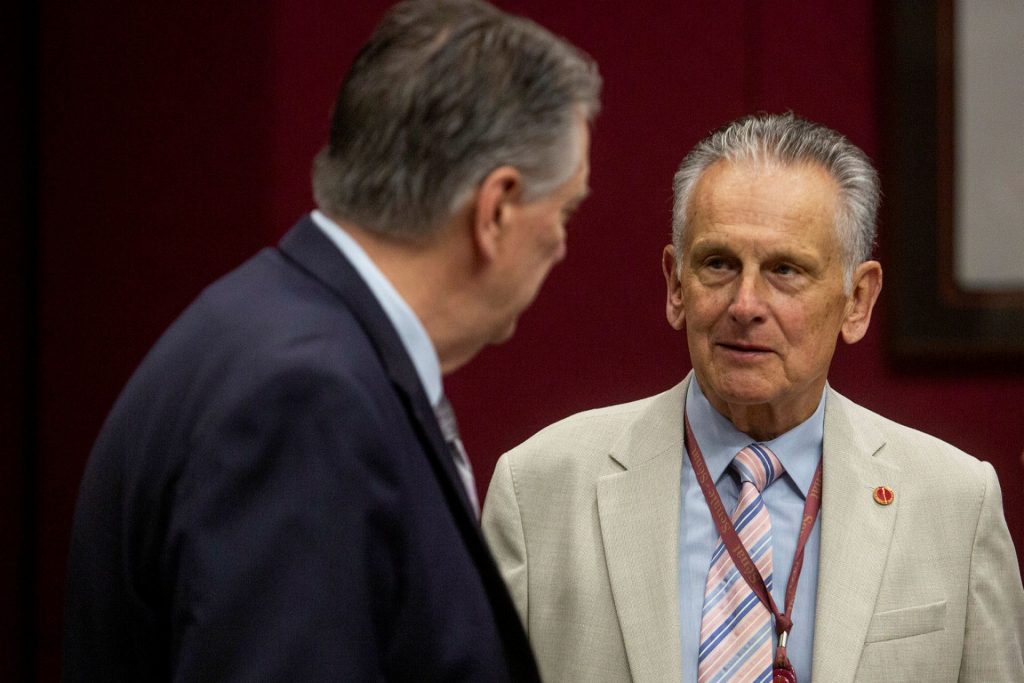
Smith said Housakos—who years ago was the one who initially encouraged Smith to get involved in politics—first raised the idea of him returning to the fold “four to six months ago.”
“The idea of going back to the caucus, especially with Leo taking over … it made the decision a lot easier,” said Smith.
While he said he “enjoyed” his time with the CSG, Smith said he felt the difference of not sitting in a party-affiliated caucus.
“When you’re in a government or an opposition caucus, you’re into the real action of what’s going on with the government and the Senate. It’s a little more difficult when you’re in a splinter group to say, ‘well, what part of the government or what part of the opposition are we related to?’ … You’re not necessarily related to anybody, you’re in a completely different environment. And so, for me, I think being in the Senate Conservative caucus, in opposition, you’re close to the engines of authority and power,” said Smith, adding that sitting in a caucus alongside Members of Parliament offers a “different level” of involvement in the legislative process.
“You also have direct access to decision-makers, whatever side they’re on,” he added.
But rather than seeing Senate modernization as a failed experiment, Smith said he sees it as “still a work in progress.”
New Prime Minister Mark Carney (Nepean, Ont.) has yet to make his first Senate appointment—two seats will be open as of the end of this month—and there’s been some contemplation among Senators about what the future holds for the institution, initially prompted by expectations last fall that the Conservatives would form government.
“I think there’s some questions that might be being asked about what is the future of how the Senate will operate, will there be any reversion back to the old way? Will it continue to evolve? These are all the questions that I think are going to be up in the air,” said Smith.
Senate group leaders react
CSG Leader Scott Tannas (Alberta) said his group wishes Smith well.
“I wasn’t caught completely by surprise … we all go through times when we’re reflecting on all of our time here and decisions and so on, and frankly, you know, there’s new leadership in the Conservatives, and that’s the fact, right? It’s a new era.”
Tannas said he doesn’t see the recent decision by three Senators to join the only party-affiliated caucus left in the Chamber as a bad sign for the future of Senate modernization, saying he thinks the bottom line is “Senators are very much, now, more independent,” and are exercising their freedom to “make whatever decisions they want with respect to affiliation.”
“I really chalk it up to the efforts of a new leader to try and keep things relevant, and I applaud him for doing it,” said Tannas.
Reacting to the announcements, ISG Facilitator Raymonde Saint-Germain (De la Vallière, Que.) said she isn’t surprised—particularly given it’s the start of a new Parliament—and that “it speaks a lot [to] the advantage in the Senate of being a member of a caucus or a group.”
“This may also demonstrate that independent Senators appointed by then-prime minister Justin Trudeau are not all on the same, I would say, ideological spectrum,” she said.
Saint-Germain said she doesn’t “believe that the modernization or the independence of the Senate is in danger,” but noted that the next Senate appointment “will give us a sign” of Carney’s vision for the institution.
Saint-Germain said since the start of the new Parliament, she’s seen a welcome “change in tone” in the Red Chamber.
“Debates are more respectful, more focused on the substance, and I see a good collegiality and co-operation amongst every group, and this includes the Conservative caucus under the leadership of Senator Housakos,” said Saint-Germain, adding she thinks it’s “no coincidence” that Conservative “recruitment seems to be more successful” since Housakos was acclaimed.
In emailed comments, PSG Leader Brian Francis (Epekwitk, Mi’kma’ki) said he’s “not surprised that [Housakos] is working hard to ensure that his caucus continues to be able to fulfil” its role as opposition, and that independence in a modern Senate is also “about the freedom of individuals to choose” how they wish to align themselves.
“Like many others, I have found it useful to belong to a group so it’s not surprising that it is the path most of us choose,” said Francis.
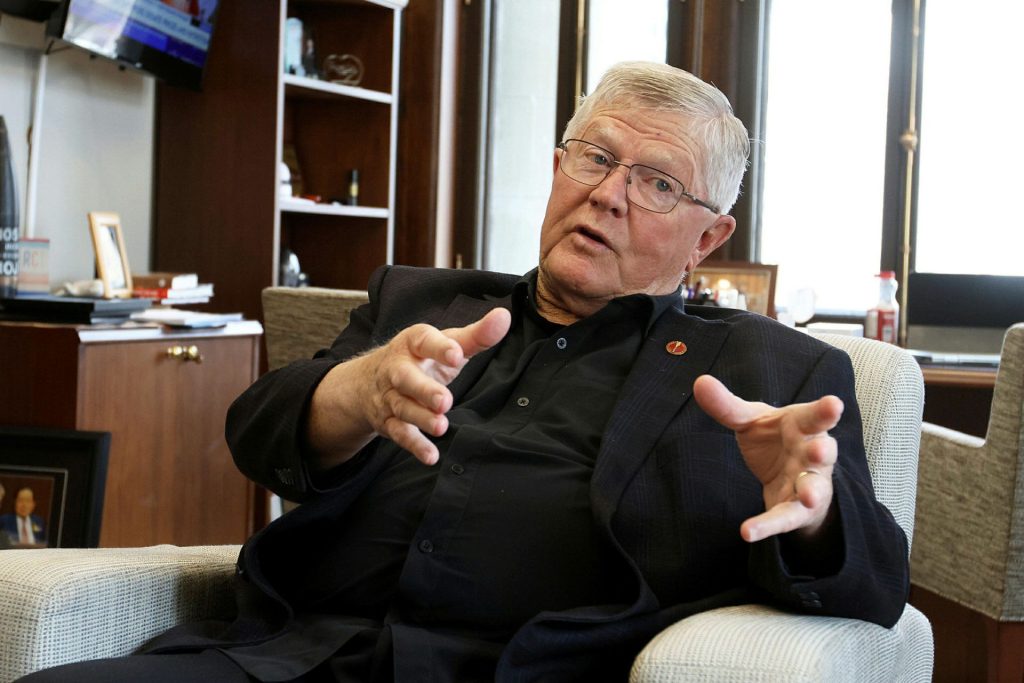
Reached by The Hill Times last week, former Conservative Senate leader Don Plett, who retired on May 14, said he isn’t taking the fact that three Senators opted to join his old caucus the month after he left personally.
“My initial reaction is: they’ve finally all seen the light,” he said.
Plett said he’d had similar conversations with Richards—who he described as “staunchly conservative” as an individual—in the past, but that the Senator expressed a desire to “keep his word to Trudeau as long as Trudeau was there.” And while personal issues were cited at the time of Smith’s departure from the Conservative caucus in 2022, Plett said it was “nothing to do with me.” Smith similarly said the pair “got along well.”
After years as a non-affiliated Senator, Plett said he thinks Housakos succeeded in convincing McCallum “that she would have a lot of freedom in our caucus,” and be able to sit on committees.
“I’m simply happy that Senator Housakos has a few extra bodies,” said Plett.
“The change in the Senate has forced the Conservatives as well to take a bit of a different view if they want to stay relevant, because if they … drop below nine, they become irrelevant. And so Leo had a big task to fill there because we were getting awfully close to that,” said Plett. “He went and made that task No. 1, and I commend him for it.”
The Hill Times






 LICENSING
LICENSING PODCAST
PODCAST ALERTS
ALERTS













